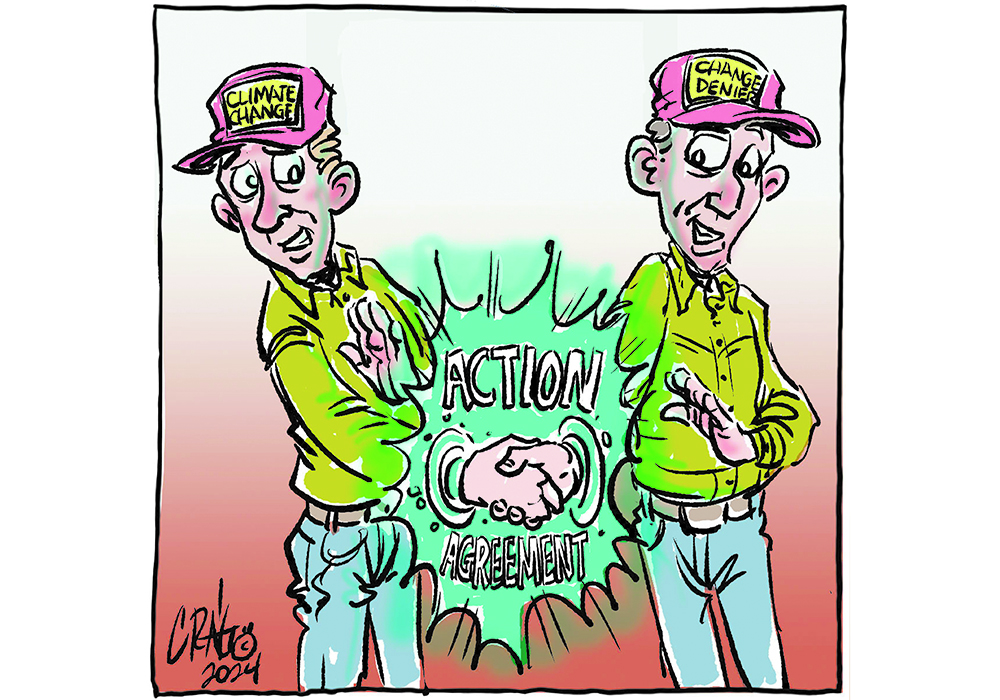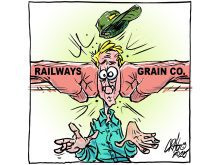We live in an increasingly polarized world.
A glaring example is what’s currently happening in the United States, but it’s certainly not the only one.
Here at home, rigid battle lines have been drawn over a variety of fronts, from the COVID-19 pandemic to First Nations reconciliation.
Read Also

High prices see cow-calf producers rushing to incorporate
Farm accountants are reporting a steady stream of cow-calf producers rushing to get their operations incorporated ahead of selling their calves this fall.
Even the country’s housing affordability crisis has fallen victim, with older urban homeowners who resist rezoning proposals pitted against younger people who see the opposition as selfish.
Making matters worse is social media’s tendency to lock people into silos, where they end up talking only to those with whom they agree.
Climate change has to be one of the most polarizing issues facing us today, and middle ground is rare. That’s why it is so refreshing to see what happened last year when Farmers for Climate Solutions organized the Prairie Farmer & Rancher Forum.
The goal was to develop recommendations on how to meet the challenges of climate change and enhance sustainability.
It might have been tempting to recruit producers who had already stated their belief in the reality and dangers of climate change, but that’s not what the organizers did.
They instead made a point of finding people on both sides of the divide.
Then they took the initiative one step further. They insisted that any recommendations come from consensus, not agreement by the majority.
In other words, every single participant in the various roundtable discussions had to agree with a recommendation before it could be accepted.
Imagine that — people who believe in climate change mitigation and those who don’t — all supporting the same sustainability solutions.
It sounds preposterous, but that’s what happened.
In its report, released earlier this summer, Farmers for Climate Solutions offered 36 recommendations on how to deal with climate change. They included:
Recognize the value and benefits of grazing animals and look at the entire production system when considering methane emissions in order to better clarify and understand the benefits.
Support farmer and rancher efforts to increase enduring organic carbon in their soils. Recognize the expanding research on more stable, long-term forms of soil organic carbon and the carbon cycle as important indicators of soil sustainability and health.
Require all major urban centres to process their sewage and industrial waste in a manner that makes the nutrients safe and available for agriculture to complete the nutrient cycle.
Support farmers and ranchers to transition to lower emissions energy sources.
By all accounts, the process wasn’t easy.
Every forum member was required to agree with the meaning and wording brought forward before it could be added to the final report. That created long days and in-depth discussions.
“Everybody in the room had to get on board with a recommendation,” said forum member Marcus Riedner, a regenerative farmer near Didsbury, Alta.
“That means that if I’m a super hardcore climate change guy and they’re a super hardcore climate change denier, we had to get onto the same page and agree to it — and that is an incredibly difficult task.”
Though they had divergent opinions on climate change, they also had one belief in common — that all agricultural producers are stewards of the land.
And that’s it in a nutshell. We may disagree on a lot of things, but there are fundamental principles on which we do agree.
Figuring out where we agree and not dwelling on where we disagree will surely lead us down a better path.
Karen Briere, Bruce Dyck, Barb Glen, Michael Robin, Robin Booker and Laura Rance collaborate in the writing of Western Producer editorials.















